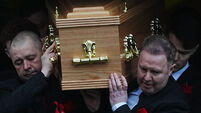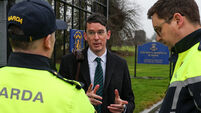Letters to the Editor: We're glad we prevailed over EV anxiety

'We’re well used to being looked at out of the side of a crooked eye.' Letter-writer Marie Curran shrugged off the warnings and is glad to have switched to an electric car. Picture: iStock
Colin Sheridan’s ode to the new owner of an EV is on point. There are begrudgers out there.
When my husband and I bought our first EV last March, voodoo was the word at the cusp of the lips around us.











